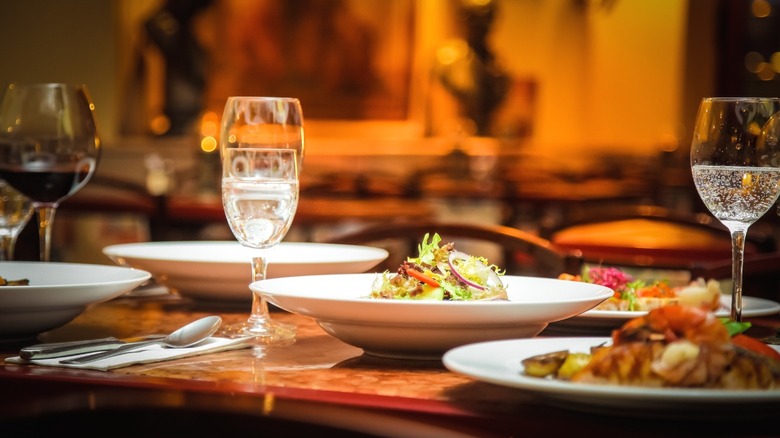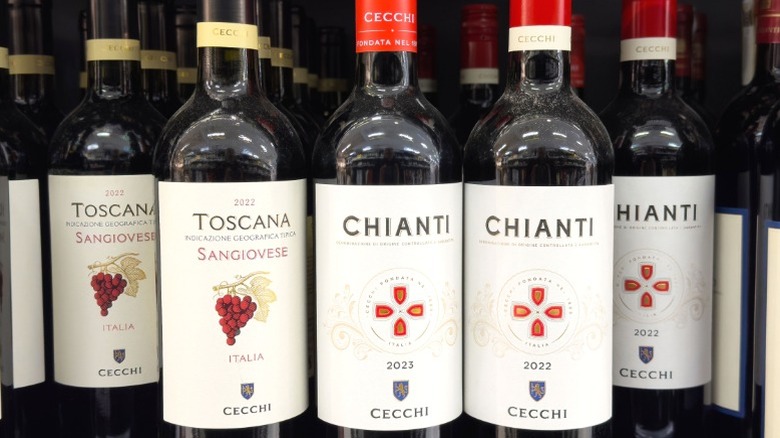Spot This On An Italian Restaurant's Drink Menu And You're Probably At A Bad One
Few things enrich the soul quite like a visit to a quality Italian restaurant (or an Italian-American restaurant, if you want to be a pedant about it). Whether you're one for pizza and spaghetti with red sauce or you prefer something like a decadent, creamy fetuccine alfredo, it's enough to make you feel like you're exactly where you need to be — even if you're preparing for a divorce, like Brenda and Eddie in the great Billy Joel's "Scenes from an Italian Restaurant." (This writer is from Long Island, so we're allowed to call Billy Joel great.) But what if you're not in a quality Italian restaurant? How can you tell? According to Erik Kelly, beverage director for the Cheese Store of Beverly Hills, if the wine list doesn't have any good Italian wines, you're in trouble.
According to Kelly, there's simply no excuse not to have Italian wines in an Italian restaurant. "Italian food and wine are deeply interconnected — one doesn't truly exist without the other," he explains. Not only is Italy a prodigious wine-producing country, but its wines are often quite regional, resulting in classic pairings any restaurant worth its salt would make use of. "Imagine visiting Liguria and having pesto or a simple grilled fish without a glass of Vermentino or Pigato — or Prosciutto di Parma without one of the many styles of Lambrusco produced in Emilia. It would feel incomplete." Sure, you may be in New Jersey rather than Liguria, and there's a statue of a portly mustachioed man in an apron on the counter, but that's no excuse for lacking a nice Chianti. Would you go to an Irish pub that didn't serve Guinness? We didn't think so.
What labels mark an authentic Italian wine?
So, how can you be sure a wine on a given list is really from Italy? There are, of course, protective labels, much like the kind you'll find on Parmigiano Reggiano cheese. There are DOC wines, or Denominazione di Origine Controllata wines, which mean they've been subject to a number of regulations (regarding region, grapes, production, etc.) to make sure they meet a certain standard of quality. Then there are DOCG wines, or Denominazione di Origine Controllata e Garantita wines, which have an extra assurance of quality with the garantita, or guarantee.
But as Erik Kelly warns, just because a wine is labeled DOCG doesn't mean it's necessarily better than its competition. "While these designations can be useful in guaranteeing that certain grapes come from specific areas, they don't always ensure excellence in the bottle." He goes on to say that, while he's "had plenty of disappointing Brunello, a DOCG wine," some of his favorite wines from regions like Etna remain labeled as DOC wines, illustrating the fact that wines from southern Italy "often don't get the same respect as their wealthier northern counterparts." Still, any Italian wine is better than none when you're sitting down for a good carbonara.

